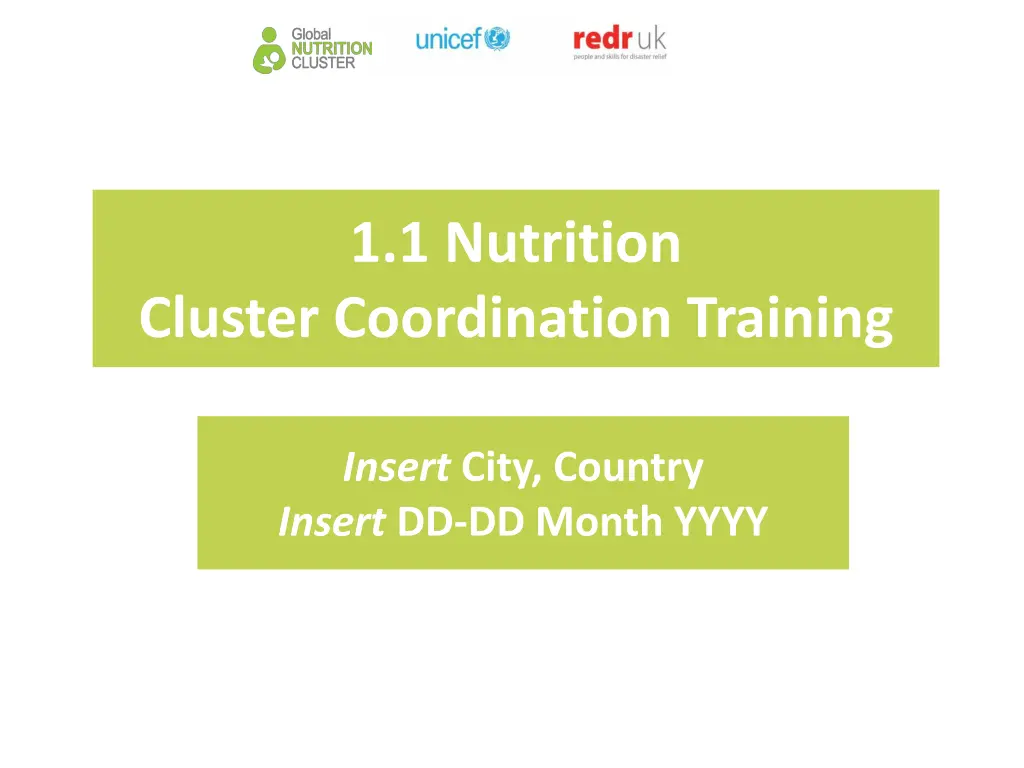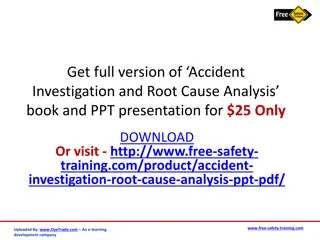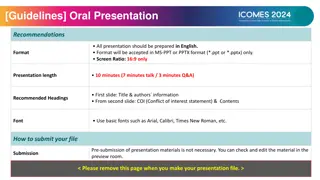
Nutrition Cluster Coordination Training in City, Country
Join us for a Nutrition Cluster Coordination Training in City, Country to enhance your skills for effective emergency response coordination. Explore key concepts, tools, and approaches while promoting dialogue among Cluster Coordinators. Learn about roles, responsibilities, and Cluster performance management to make a difference in humanitarian programs.
Download Presentation

Please find below an Image/Link to download the presentation.
The content on the website is provided AS IS for your information and personal use only. It may not be sold, licensed, or shared on other websites without obtaining consent from the author. If you encounter any issues during the download, it is possible that the publisher has removed the file from their server.
You are allowed to download the files provided on this website for personal or commercial use, subject to the condition that they are used lawfully. All files are the property of their respective owners.
The content on the website is provided AS IS for your information and personal use only. It may not be sold, licensed, or shared on other websites without obtaining consent from the author.
E N D
Presentation Transcript
1.1 Nutrition Cluster Coordination Training Insert City, Country Insert DD-DD Month YYYY
Welcome and Introductions
Workshop Team Insert Facilitator Insert Facilitator Insert Host (covering Administration/Logistics)
Introductions Take a question card In pairs, introduce yourselves and ask each other the question on your card. Trade cards with your partner Find a new person to form a pair and repeat 4
Aim of this Training To share key concepts, tools and approaches for effective coordination of nutrition of emergencies responses To prepare participants for working the Nutrition Cluster/Sector Coordination To promote dialogue and sharing between existing and potential Cluster/Sector Coordinators
Overall Training Outcomes Expand knowledge of the Cluster Approach (origins, aims, and functions) Explore the roles, responsibilities and accountabilities of Cluster/Sector coordinators, partners and stakeholders Describe the attitude, skills and behaviours needed by Cluster/Sector partners to support effective Cluster/Sector performance Identify how to access and use Cluster specific tools, sources of information and lessons learned for each stage of the Humanitarian Programme Cycle Gain practical examples of Cluster/Sector performance management tools, processes and products
Summary Agenda Day 1 UNDERSTANDING HUMANITARIAN COORDINATION CONTEXT Day 2 DEVELOPING COORDINATION COMPETENCIES Day 3 COORDINATION WITHIN HUMANITARIAN PROGRAMMES Day 4 COORDINATION WITHIN HUMANITARIAN PROGRAMMES Day 5 COORDINATION WITHIN HUMANITARIAN PROGRAMMES
Roles and Responsibilities The course contributes to meaningful, relevant learning outcomes that participants can apply in their work. RESULTS RIGHTS RELATIONSHIPS Participants have equitable opportunities to engage, share views, ask questions, and meet their learning needs and expectations. Participants and facilitators need a relationship based on trust and respect to achieve the learning outcomes. Coordination Training Course
How will we do this? We all have a shared responsibility for a successful training Facilitators will: Participants will: We all will: Present and explain key cluster coordination concepts Facilitate discussions and feedback Help participants apply learning through group work Help keep participants focused and energized Turn off our mobile phones during sessions Not look at our emails during sessions Stay motivated and focused Arrive on time Arrive prepared Listen and speak respectfully Participate in discussions and group work
Methodology Methods include: Handouts Action plans Interactive presentations Flash drives Quizzes Discussions To ensure engagement and interest, and involvement in sharing experiences






















